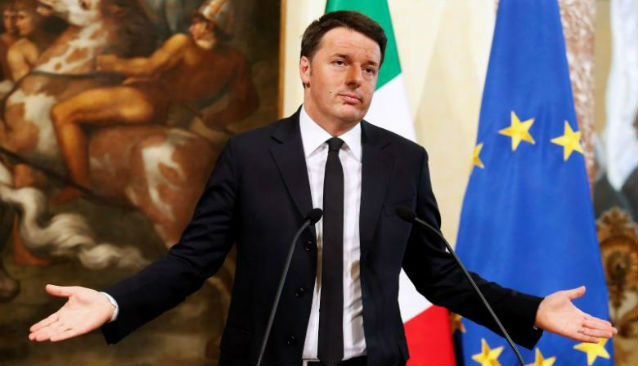 EUR prices down almost to $1.05 level at the beginning of the new trading week after the publication of the first results of the referendum in Italy on the issue of constitutional reform of the country. The last time the European single currency was so cheap in the spring of 2015.
EUR prices down almost to $1.05 level at the beginning of the new trading week after the publication of the first results of the referendum in Italy on the issue of constitutional reform of the country. The last time the European single currency was so cheap in the spring of 2015.
The euro fell to a 20-month low on Monday and investors fled riskier assets after Italian Prime Minister Matteo Renzi said he would resign following a stinging defeat on constitutional reform that could destabilize the country's shaky banking system.
European stock markets are also set for a weak start, with Italy underperforming as investors brace for turbulence and political crisis in the euro zone's heavily indebted third-largest economy.
Analysts believe that such a sharp depreciation of the single European currency could open the way to a further drop of EUR below the low of March 2015.
Citizens of Italy at yesterday's national referendum rejected the constitution reform bill proposed by Prime Minister Matteo Renzi. Immediately after the publication of the first results of the referendum, the leaders of the opposition party Forza Italia said that the Prime Minister should keep his promise and resign.
The proposed reform of the Renzi government was a package of bills aimed at eliminating existing in the country a bicameral parliamentary system. The ruling party considered that the abolition of the existing parliamentary system would help to significantly reduce government spending.
Most Italians considered Renzi’s proposal unacceptable. At the moment, the Italian Senate - the upper house of parliament - completely duplicates the functions of the Chamber of Deputies, or the lower chamber. The only difference is that in the Senate there is a half of parliamentary seats (315 against 630).
Any bill must pass the two houses with the same text. When the smallest revisions appear in one chamber, the other is obliged to consider it again, and practice shows, this process can last a very long time. On the other hand, the present system eliminates excess in the balance of power to the direction of the government.













